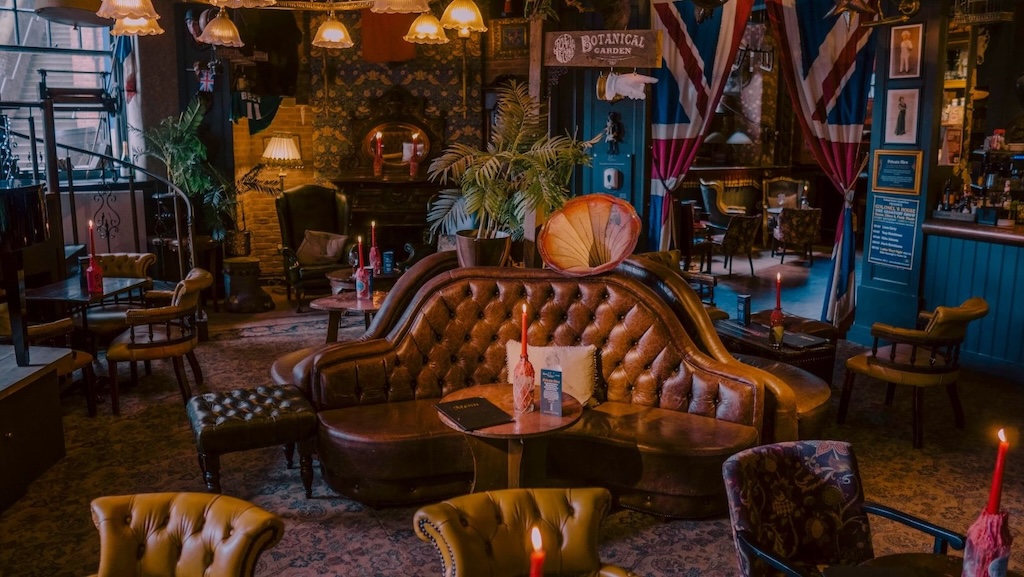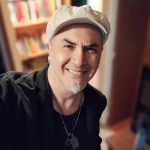Rapoon
Clear melodies that seep like rays of light through the ruins.
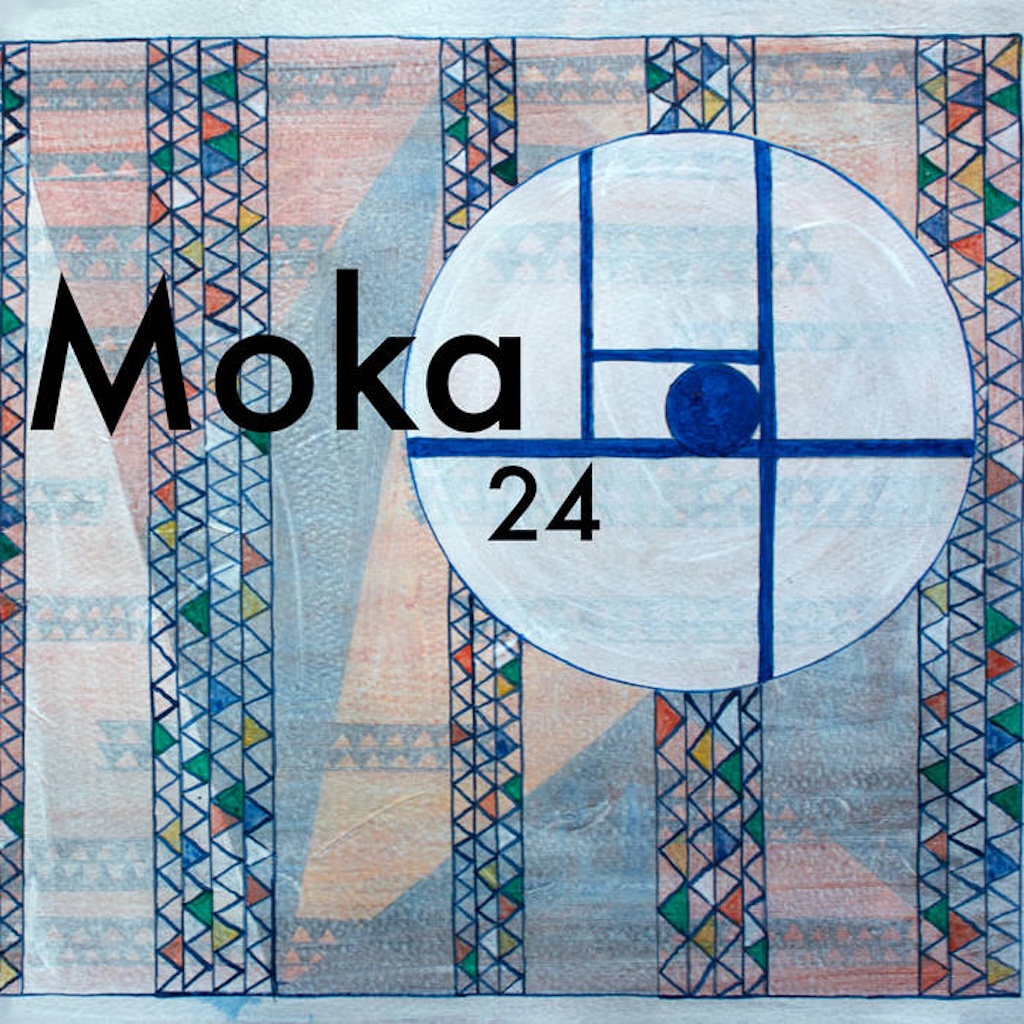
Llueve copiosamente sobre Newcastle Upon Tyne, la última frontera norte de la vieja Inglaterra. Es enero de 2025 con una lluvia helada que cala hasta los huesos. Hemos llegado hasta aquí para encontrarnos con el polifacético Robin Storey, ex miembro de :zoviet* france: más conocido por su alter ego: RAPOON. El lugar elegido es el viejo pub Coronel Porters en el centro de esta vieja ciudad. Con sus calles empinadas y sus majestuosos castillos medievales, Newcastle es la tierra de los geordies, descendientes de las migraciones danesas que llegaron y prosperaron con rigor antes que el reino se unificara. Mi emoción es certera; seguimos el trabajo de Rapoon desde hace décadas y este encuentro es doblemente simbólico, pues fue mi colega, el propio Guillermo Escudero quien nos mostró dicho proyecto por ahí en los albores de los 90s.
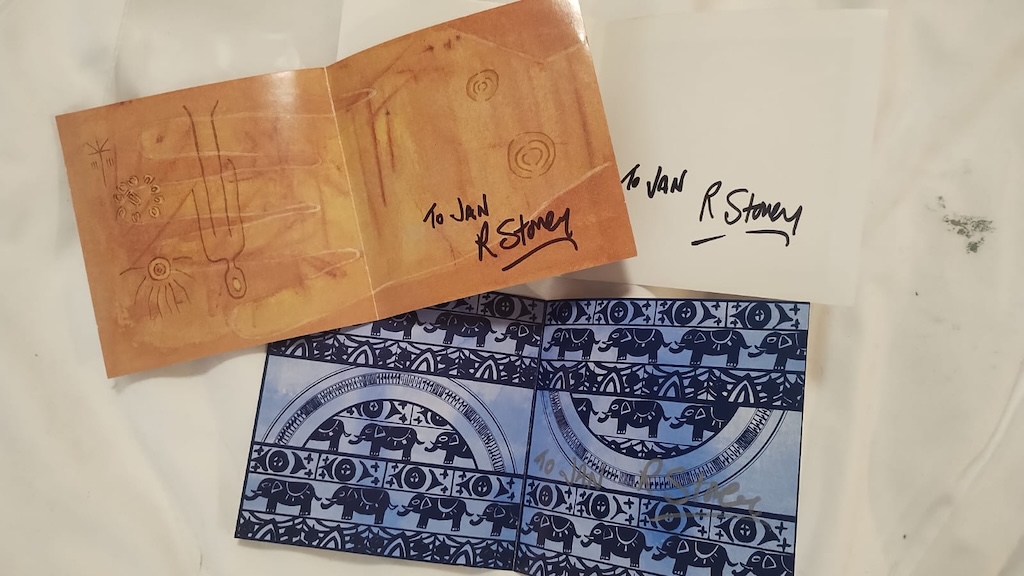
Robin Storey es un musico y pintor inglés que en los 80s – junto a otros artistas – funda la mítica banda experimental :zoviet*france:. En 1992, comienza su periplo en solitario bajo el nombre de Rapoon, en una suerte de electrónica tribal, y que acompañado de bandas como O Yuki Conjugate, Hybrids, Vidna Obmana, entre otros, definieron una nueva línea en la electrónica experimental noventera.
Me siento ansioso y bebo un par de pintas esperando a mi amigo; los muchachos del bar me preguntan a quién espero y les cuento la historia; rápido comienzan a comentar entre ellos que “El Rapoon” está por arribar; una situación bastante divertida con una dulce singularidad.
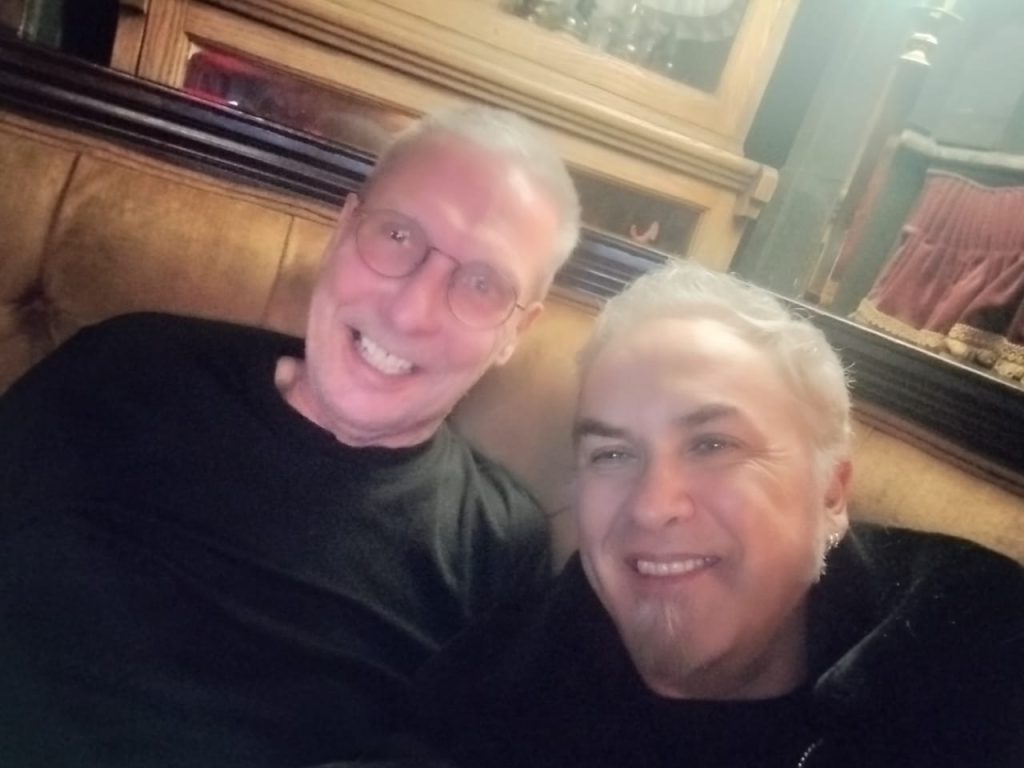
Nos encontramos y nos damos un abrazo, nos sentamos en un cómodo y antiguo sofá, yo bebiendo Guinness y Robin una copa de vino. Comenzamos una amena charla que nos lleva por diferentes espacios y lugares, desde sus comienzos en la música -inspirado por su padre que reparaba artículos electrónicos en casa – hasta su ruptura con sus antiguos compañeros de banda. Robin no proviene de la escena punk ni rock de los 80s; él pertenece a otro universo, un lugar donde imagen y sonido se confunden, un sistema estelar de colores y vibraciones, donde el tiempo no tiene mucha importancia. Con una sencillez y modestia a toda prueba, Robin es un hombre profundo, intenso, gigante. Charlamos sobre la situación actual en el mundo y en especial en su país, y de la decadencia de los tiempos en que vivimos donde todo parece estar al revés; pero también reímos, me regaló sus honestas sonrisas, su confianza.
“El tiempo es un círculo plano. Todo lo que hemos hecho o haremos, lo haremos una y otra vez… para siempre.” Así comienza la descripción de su entonces último disco (2024), “MoKA 24” (ha editado cuatro trabajos en 2025). Un disco variopinto que desemboca donde mismo, cuyos temas están unificados en el mismo entorno (sic). Con pistas vocalizadas, estructuras de electrónica dura, pistas de pianos ambientales, el disco también recurre a su sonido característico; la percusión con ribetes indios. Tomando el título del nombre ficticio de un club nocturno de la serie Babylon Berlin, que, ambientada en la decadencia y el caos de la década de 1920, hace un paralelismo con la decadencia del occidente actual.
Este trabajo consta de 12 pistas, dentro de las cuales destacan el ritmo salvaje high tech de “The White Line to Horizon”; la belleza contemporánea de “That Dirty Road”, la poesía sónica de “The Emptiness of Dreams”, el místico “Night Train in Europe”, (al más puro estilo Rapoon, y que no es una querella, es un mantra) y que cierra un círculo perfecto con “Dance in Dreams”.
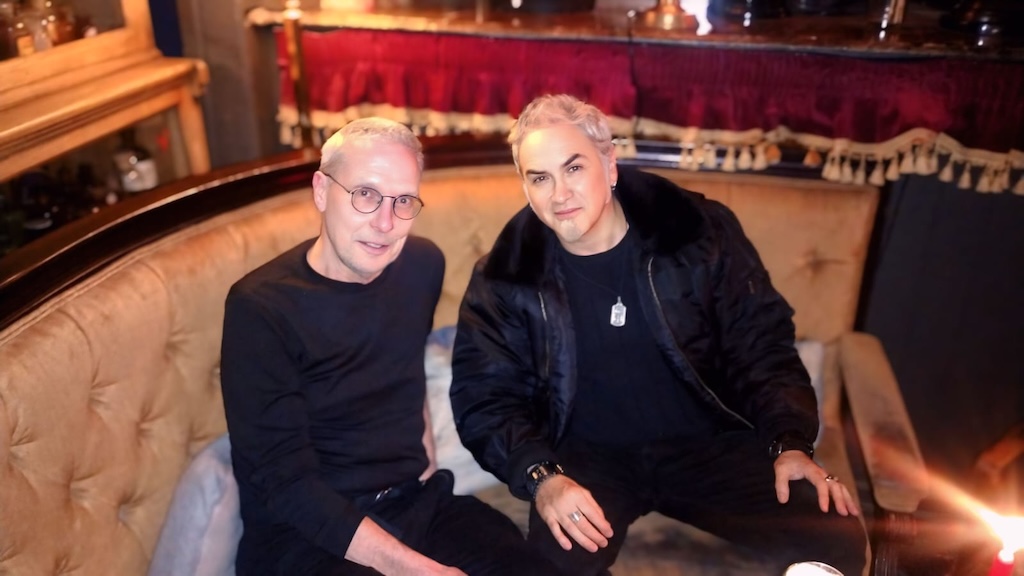
Melodías diáfanas que se cuelan como rayos de luz entre las ruinas, un momento repetitivo de un retorno eterno. Expresiones cuyo ethos es el mismo, atemporal, no pasa de moda porque nunca lo fue. “MoKa 24” constituye un universo alterno, un escape al imperio de la contingencia, al reino de lo imperante. Pensamientos de acero musicalizados por un artista, un hombre, que mora entre nosotros, pero cuyo espíritu vive lejos, allá en lo alto.
It’s raining heavily over Newcastle Upon Tyne, the last northern frontier of old England. It’s January 2025, with a freezing rain that chills to the bone. We’ve come here to meet with the multifaceted Robin Storey, former member of :zoviet* france: better known by his alter ego: RAPOON. The chosen venue is the old Coronel Porters pub in the center of this ancient city. With its steep streets and majestic medieval castles, Newcastle is the land of the Geordies, descendants of the Danish migrations who arrived and prospered with rigor before the kingdom was unified. My excitement is unwavering; we’ve followed Rapoon’s work for decades, and this meeting is doubly symbolic since it was my colleague Guillermo Escudero himself who showed us this project back in the early 1990s.
Robin Storey is an English musician and painter who, in the 1980s, along with other artists, founded the legendary experimental band :zoviet*france:. In 1992, he began his solo career under the name Rapoon, playing a kind of tribal electronica. Along with bands like O Yuki Conjugate, Hybrids, Vidna Obmana, and others, he defined a new line in 1990s experimental electronica.
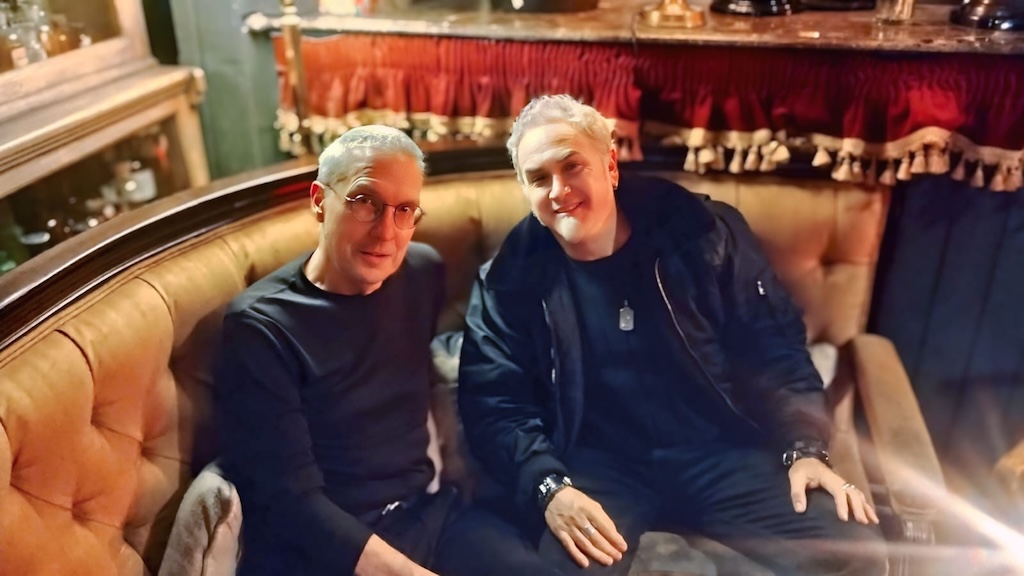
I feel anxious and drink a couple of pints while waiting for my friend. The guys at the bar ask me who I’m waiting for, and I tell them the story. They quickly start commenting among themselves that «The Rapoon» is about to arrive; a rather amusing situation with a sweet singularity.
We meet and hug, then sit on a comfortable, antique sofa, me drinking Guinness and Robin a glass of wine. We began a pleasant conversation that took us through different spaces and places, from his beginnings in music—inspired by his father, who repaired electronics at home—to his breakup with his former bandmates. Robin doesn’t come from the punk or rock scenes of the ’80s; he belongs to another universe, a place where image and sound merge, a stellar system of colors and vibrations, where time doesn’t have much importance. With unwavering simplicity and modesty, Robin is a profound, intense, and gigantic man. We chatted about the current situation in the world, especially in his country, and about the decadence of the times we live in, where everything seems upside down. But we also laughed. He gave me his honest smiles and his confidence.
“Time is a flat circle. Everything we’ve done or will do, we’ll do again and again… forever.” Thus begins the description of his then-latest album (2024), ‘MoKA 24’ (he has released four albums in 2025). A diverse album that leads to the same place, its themes unified by the same environment (sic). With vocal tracks, hard electronic structures, and ambient piano tracks, the album also draws on its signature sound: Indian-tinged percussion. Taking its title from the fictional name of a nightclub in the series Babylon Berlin, which, set in the decadence and chaos of the 1920s, draws a parallel with the decadence of the West today.
Released by the Klang Galerie label, this work consists of 12 tracks, among which stand out the wild high-tech rhythm of ‘The White Line to Horizon;’ the contemporary beauty of ‘’That Dirty Road;’ the sonic poetry of ‘The Emptiness of Dreams;’ the mystical ‘Night Train in Europe’ (in true Rapoon style, and this isn’t a quarrel, it’s a mantra) and which closes a perfect circle with ‘Dance in Dreams.’
Clear melodies that seep like rays of light through the ruins, a repetitive moment of eternal return. Expressions whose ethos is the same, timeless, timeless because it never was. ‘MoKA 24’ constitutes an alternate universe, an escape from the empire of contingency, from the realm of the dominant. Thoughts of steel set to music by an artist, a man, who dwells among us, but whose spirit lives far away, up above.
